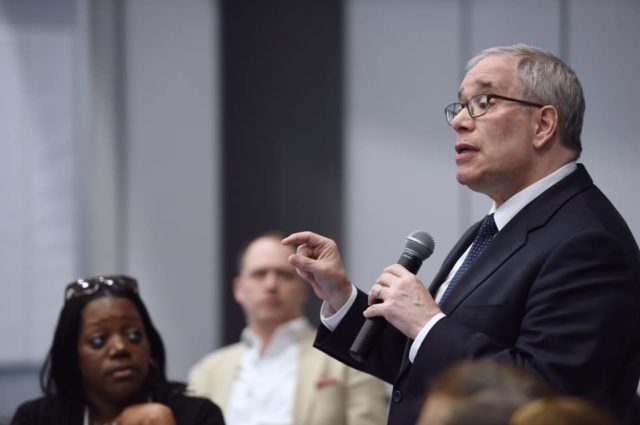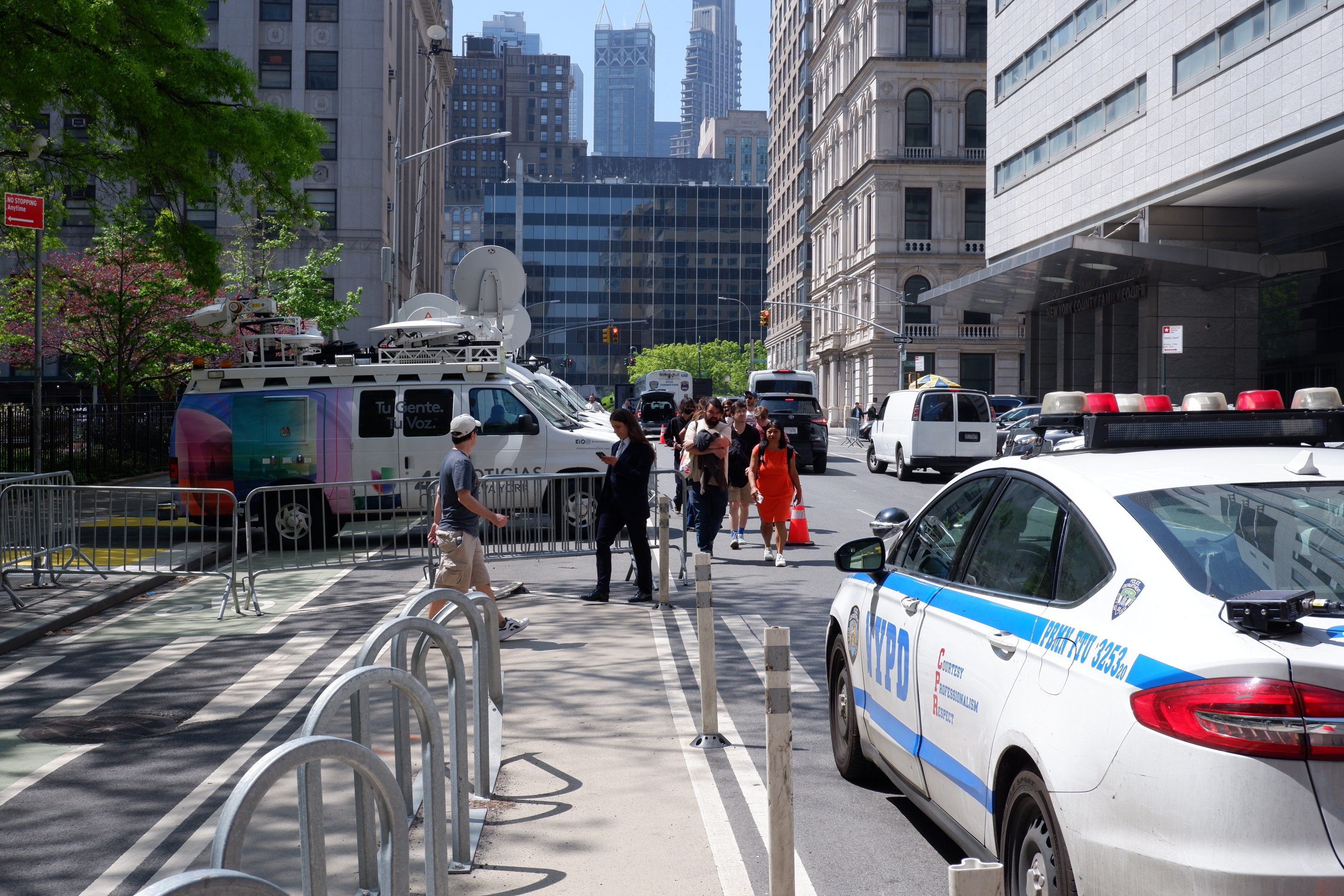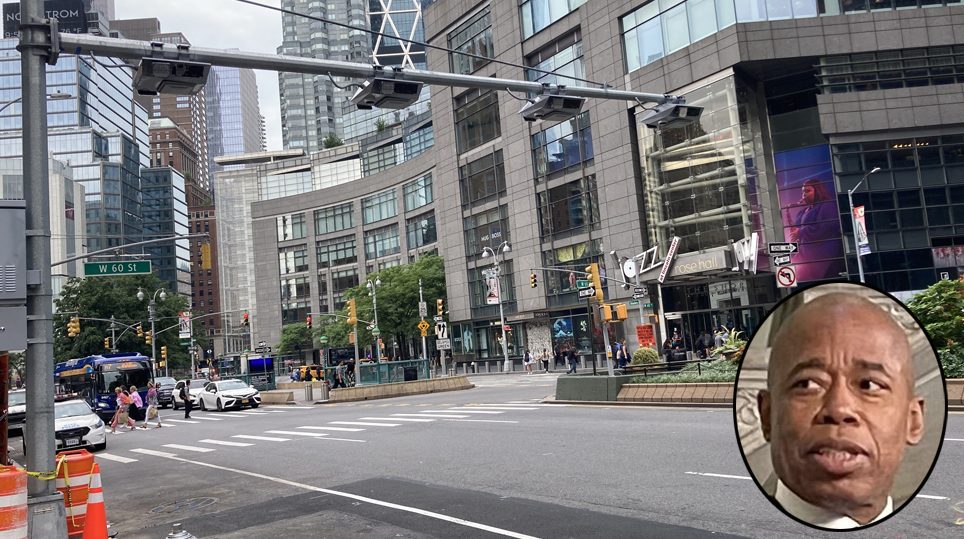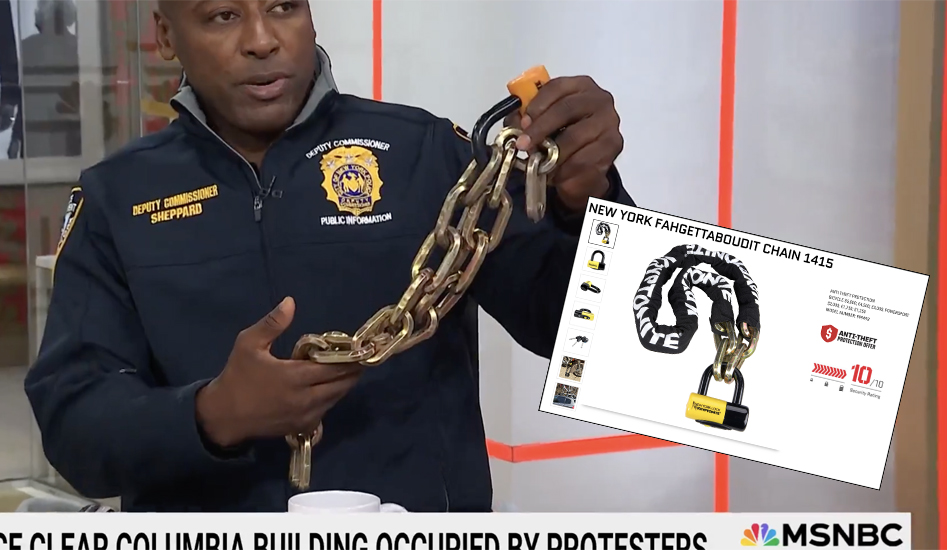New York City's top money man is the latest to wave a caution flag on the MTA reorganization plan.
Comptroller Scott Stringer will send a letter to the MTA Board this morning asking for a "thoughtful, thorough and transparent" process in the attempt to build MTA II. In particular, Stringer asked the board to consider whether the centralization efforts that are at the heart of the AlixPartners plan will lead to a cheaper and more-efficient transit agency and how the recommendations are really going to be put into place.
“The subway is the lifeblood of our city — and the MTA Transformation plan must truly deliver the lasting change riders need and deserve,” Stringer said in a statement. “Recent subway meltdowns have shown us in stark detail that reforming the MTA is absolutely urgent, but any reorganization must be done right. We have to ensure a thoughtful, thorough, and transparent process that’s fully accountable to its primary stakeholders — New Yorkers. I urge the Board to take a close look at this proposed plan, ensure it protects the best interests of riders and the City’s finances and vote for changes if not. We cannot afford to get this wrong.”
Stringer's letter raised questions about four areas of the reorganization plan:
- the proposal to put all capital construction projects under a centralized umbrella
- the proposal to consolidate the city's bus services and potentially make buses their own independent transit agency
- how the plan will actually lead to expanded commuter rail use in the city limits
- why the proposed plan doesn't include any mention of the Staten Island Railway.
On the question of centralizing capital construction, Stringer asked a pair of questions that observers have also been demanding answers to: would the proposed capital construction division replace or be folded into the MTA Capital Construction Corporation, and would that consolidation mean that the resignaling and ADA-compliance upgrade plan known as Fast Forward be taken from New York City Transit and given to the new centralized capital program?
The future of capital construction and Fast Forward has been a much-debated piece of the proposed reorganization, as critics have pointed to the MTA Capital Construction Corporation's oversight of the delayed and over budget Second Avenue Subway and East Side Access projects as proof that centralization isn't a panacea for construction costs or deadlines.
Stringer also asked for specifics on the issue of city buses, demanding to know what merging the city-subsidized MTA Bus Company with the other two bus operations in New York (New York City Transit Bus and the Manhattan and Bronx Surface Transit Operating Authority) could potentially cost the city.
"The city's obligation to MTA Bus has increased dramatically in recent years, rising from $199 million in Fiscal Year 2006 to $462 million in Fiscal Year 2017," Stringer wrote, seeking an explanation for the expense and whether a merger of the companies would truly help.
Stringer commended AlixPartners for suggesting the MTA take a "regional, multimodal view of service design and delivery," but he asked the board how exactly the agency is going to deliver better commuter rail service for city residents. The comptroller, who's championed on the idea of cheaper fares for travelers using commuter rail within the city limits, asked if the reorganization plan involved any study of whether in-city Metro-North and LIRR ridership would increase with lower fares.
And finally, Stringer asked why Staten Island Railway, an independent agency within the MTA whose city subsidy has risen from $30.7 million in Fiscal Year 2012 to $58.7 million in Fiscal Year 2017, was left out of the plan entirely. Stringer called the omission "concerning" is his letter, and asked where the railway's back office functions would fit in the proposed Nu MTA.
The comptroller wouldn't go as far as a coalition of transit groups went this week and ask the board to vote the plan down entirely, but Stringer did criticize the timeframe of the plan and said he sent the letter "to sound the alarm on some critical issues that appear under examined or entirely ignored in this process."
"There's no question that a plan that was developed, released and scheduled to be voted on in just four months would benefit from far greater transparency, and it's completely backwards for a public comment period to start after the MTA commits to the plan. Transparency is one concern but above all, I want the Board to examine the plan's actual efficacy," Stringer said.
The MTA board will vote on the plan — and likely approve it — on Wednesday.
Scott Stringer Letter on MTA Reorganization by Gersh Kuntzman on Scribd





